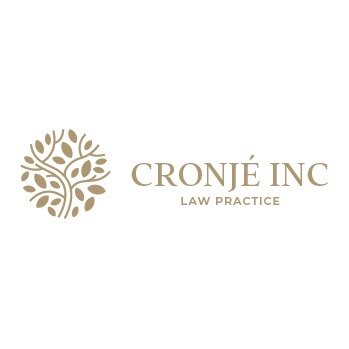Best Trusts Lawyers in Windhoek
Share your needs with us, get contacted by law firms.
Free. Takes 2 min.
List of the best lawyers in Windhoek, Namibia
About Trusts Law in Windhoek, Namibia
In Windhoek, Namibia, trusts are an essential legal instrument used for various purposes, including estate planning, asset protection, and financial management. Trusts allow individuals or entities, known as trustees, to hold and manage assets for the benefit of beneficiaries. The Trusts Monies Protection Act regulates the establishment and operation of trusts within Namibia, ensuring that trustees are held accountable for their management duties. Namibian law recognizes various types of trusts, such as inter vivos trusts, testamentary trusts, and charitable trusts, each serving different purposes depending on the needs of the settlor.
Why You May Need a Lawyer
There are numerous situations where individuals or businesses in Windhoek may require legal assistance with trusts. Some common scenarios include:
- Establishing a trust to manage estate planning or protect family assets.
- Ensuring compliance with local regulations and legal requirements when setting up a trust.
- Resolving disputes between trustees and beneficiaries.
- Modifying or dissolving an existing trust, which may involve complex legal considerations.
- Navigating tax implications associated with trust structures.
- Managing succession planning for business or family assets.
Local Laws Overview
The key aspects of local laws regarding trusts in Windhoek, Namibia include:
- Trusts must be registered with the Master of the High Court in Namibia to be considered legally valid.
- The Trusts Monies Protection Act outlines the responsibilities and obligations of trustees, ensuring they act in the best interests of the beneficiaries.
- Namibian law requires that trustees are impartial and maintain detailed records of the trust's assets and transactions.
- Beneficiaries have the right to information about the trust and its administration, promoting transparency and accountability.
- Charitable trusts must demonstrate a clear public benefit to qualify for specific legal protections and tax considerations.
Frequently Asked Questions
1. What is a trust?
A trust is a legal arrangement where one party, known as the trustee, manages and holds assets on behalf of another party, the beneficiary, under terms set by the settlor.
2. What are the main types of trusts in Namibia?
The main types of trusts include inter vivos trusts (created during the settlor's lifetime), testamentary trusts (established through a will), and charitable trusts (for public benefit causes).
3. Who can be a trustee?
Any person or entity capable of managing assets and adhering to the fiduciary obligations defined by the trust deed can be a trustee, subject to certain legal restrictions.
4. How do I register a trust in Namibia?
To register a trust, the necessary documentation must be submitted to the Master of the High Court in Namibia, where it will be recorded and validated.
5. Can a trust be modified or revoked?
Yes, a trust can be modified or revoked if the trust deed allows for it, typically requiring consent from the settlor, trustees, and beneficiaries, or by court order.
6. What are the tax implications of a trust?
The tax implications depend on the type of trust and jurisdiction, requiring expert advice to ensure compliance and efficiency.
7. Do trusts have to file annual reports?
Trusts are generally required to maintain detailed financial records and may be required to submit them to relevant authorities, depending on the trust type and specifics.
8. How can disputes within a trust be resolved?
Disputes can be resolved through negotiation, mediation, or legal proceedings, and may require professional legal advice to address complex issues.
9. What is the role of a beneficiary in a trust?
Beneficiaries are the individuals or entities entitled to benefit from the trust assets and have rights to information about the trust's management and financial standing.
10. How does a testamentary trust differ from an inter vivos trust?
A testamentary trust comes into effect upon the settlor's death and is typically established through their will, whereas an inter vivos trust is set up during the settlor's lifetime.
Additional Resources
For more information on trusts, consider contacting the following resources:
- Office of the Master of the High Court: Can provide guidance on trust registration and compliance.
- The Law Society of Namibia: Offers a directory of qualified legal practitioners in Windhoek specializing in trust law.
- Namibian Tax Authorities: For advice on the tax implications and obligations for trusts.
Next Steps
If you require legal assistance with trusts in Windhoek, Namibia, consider taking the following steps:
- Identify your specific needs and objectives related to the trust.
- Research and consult with a qualified legal expert specializing in trusts law to discuss your situation.
- Gather all necessary documentation and information about your assets and intended beneficiaries.
- Collaborate with your legal advisor to draft or review the trust deed to ensure it meets your requirements and legal standards.
- Complete the registration process with the Master of the High Court, if applicable.
- Regularly review and update the trust to adapt to changing laws and personal circumstances.
Lawzana helps you find the best lawyers and law firms in Windhoek through a curated and pre-screened list of qualified legal professionals. Our platform offers rankings and detailed profiles of attorneys and law firms, allowing you to compare based on practice areas, including Trusts, experience, and client feedback.
Each profile includes a description of the firm's areas of practice, client reviews, team members and partners, year of establishment, spoken languages, office locations, contact information, social media presence, and any published articles or resources. Most firms on our platform speak English and are experienced in both local and international legal matters.
Get a quote from top-rated law firms in Windhoek, Namibia — quickly, securely, and without unnecessary hassle.
Disclaimer:
The information provided on this page is for general informational purposes only and does not constitute legal advice. While we strive to ensure the accuracy and relevance of the content, legal information may change over time, and interpretations of the law can vary. You should always consult with a qualified legal professional for advice specific to your situation.
We disclaim all liability for actions taken or not taken based on the content of this page. If you believe any information is incorrect or outdated, please contact us, and we will review and update it where appropriate.













